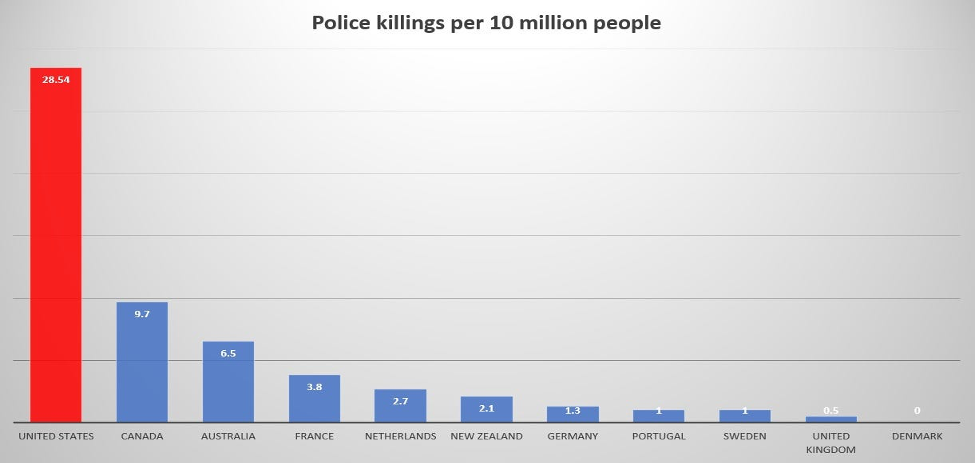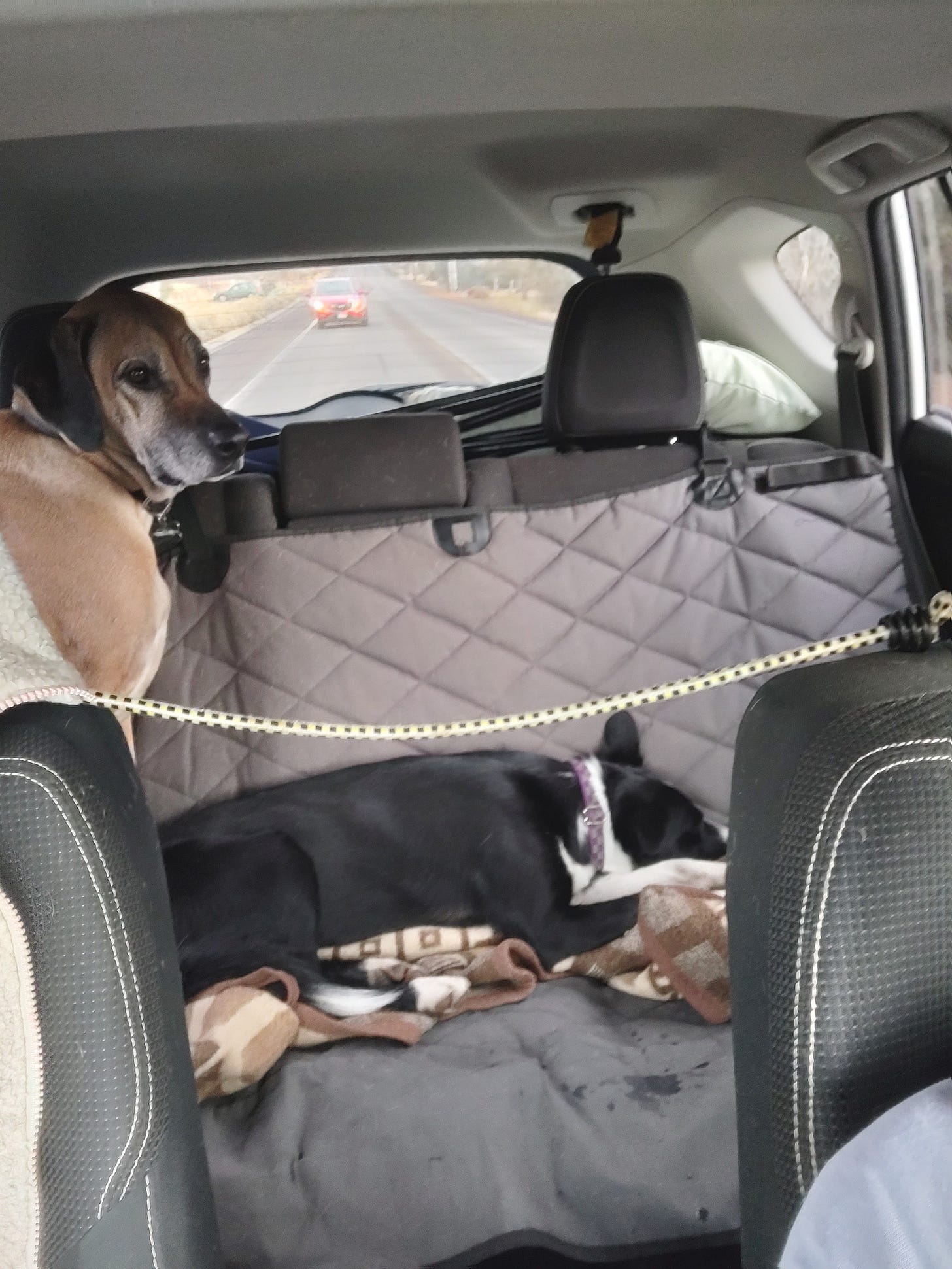The video footage of Tyre Nichols being beaten to death by five police officers has, once again, shocked the nation. A week after Nichols was murdered, in Atlanta, a young man was shot and killed by police during a raid on environmental activists who were protesting the destruction of a 300-acre urban forest in order to build a $90 million “Cop City”. Sadly, it’s not all that uncommon for environmental activists to be murdered in Latin America. However, this is, as far as I know, is the first time in US history that an environmental activist has been killed due to their activism.
The confluence of these two events highlight a deeply broken and dangerous culture within the American policing system. This includes militarization, lack of adequate training, and powerful unions with an obstructionist nature that prioritizes protection of member cops over the interests of the communities they police.
Tyre Nichols was black, and so were the five officers who beat him to death so overt racism doesn’t seem likely. The officers got spun up into some sort of a murderous, macho, gang mentality that enabled them to cold-heartedly torture someone to death. Even with body cameras on they had no impulse to rein in their violence. What needs to be explored is what led them to believe they could use such horrific, excessive, group force with impunity.
The killing of the young environmentalist, Manuel Esteban Paez Terán, brings up different issues. Police have claimed Terán fired first, but they have provided no evidence of that. The proposed Cop City concept would be a training center for police and fire service workers. Proponents claim it would boost officer morale and retention and enable better skills training. Opponents are concerned it would further militarize the police and destroy a much-loved urban forest. Most of the residents in surrounding neighborhoods are Black and largely opposed to razing the forest. In fact, in 2017, plans to preserve the forest were adopted as part of Atlanta’s city charter, but that was reversed to make room for the planned training center. The “Stop Cop City” movement began in response.
Along with the killing of Terán, a number of activists were arrested and have been charged with domestic terrorism other federal offenses that carry heavy sentences. If any of the protestors did shoot at or inflict violence upon an officer, then charges are certainly in order. However, we all also have the right to peaceful protest and freedom of speech. I am curious to learn whether the activists had taken any physical or illegal action prior to the onset of the raids by police forces armed in riot gear. There are certainly reports of vandalism of equipment associated with the forest clearing process and the civil disobedience of occupying the area but that certainly doesn’t rise to terrorism.
I did some research for this article that I want to share with you. Compared to other western/European-centric countries, the U.S. doesn’t have more police per capita but it does have, by far, more police killings.

In addition, U.S. police are required to go through far fewer hours of training than police in other European-centric countries. In fact, the required training time is half that of police in Canada and one-tenth that of Finland officers.
This last piece might make it seem to make sense to build the proposed training campus, AKA Cop City in Atlanta, but I disagree. The investment needs to be in fundamentally dismantling and reconstructing U.S. policing culture and norms. According to the U.S. Justice Department an estimated twenty-five percent of current police officers have previous military experience. A critical examination must be made into whether they are getting adequate training to shift from a soldier mentality to a community protector orientation. Until fundamental internal changes are made to police institutions, standards and training protocols it makes no sense to invest millions in a new campus that perpetuates the current broken system.
Furthermore, as the world careens toward climate catastrophe, forests have become more important than ever before. In addition to carbon sequestration, urban forests provide the added benefit of cooling the spaces around them providing both heat relief and outdoor recreation options. Given the importance of forests and the fact that the overall police culture is severely flawed, does it really make sense to replace a healthy and beloved urban forest with a military-style police training compound that is designed for very little public oversight?
It's important for me to note that I have a number of friends who are police officers and I am also a strong supporter of unions as a means to protect workers from corporatocracy power. However, even institutions that started with the best of intentions can lose their way.
We are in the midst of a cultural comeuppance, in which serious and dangerous long-standing, but glossed over flaws in many of our systems and institutions are no longer remaining hidden. In addition, we are no longer be able to ignore the damage we are inflicting to the climate and other natural systems that sustain us. In my view many of the devastating dysfunctions surfacing in the U.S. policing system are reflections of the ills in our overall society. These include glorifying violence, an historical attitude of us-versus-them (just think genocide of native American tribes, slavery, violence toward immigrants), and blatant unwillingness to curb human activities that destroy ecosystems and critical habitats.
If the American experiment is to survive, let alone thrive, we must face, head-on, these broken aspects of our history and current collective consciousness. We cannot just sit back and leave this to elected officials. No matter what your own personal circle of influence is you have power to influence those around you and help shift our trajectory. Speak up, have challenging, non-violent conversations, maybe even take part in non-violent demonstrations, use the power of “Imagineering” to envision and build energy toward a healthier society and world. These are transitional, transformational, precious and precarious times that call for engagement and overturning many money-lender and power-broker tables.
P.S. I was inspired to write this piece based on a good article by fellow writer Marianne Williamson. Here is that piece.
Making Room for Friends
Life with Livvy and Lotta Dog
A few months back when I introduced Freya (LottaDog) and Olive (Livvy) I explained that it was pretty nerve-racking introducing the tiny pup to the huge, powerful Freya, who tended to be socially awkward around other dogs. It turns out it to be a nearly instant love affair. I don’t think Freya had a chance to have much of a puppyhood and she has really enjoyed the romping and wrestling with feisty Livvy.
I am so surprised to find that Livvy is actually the bossier of the two and Freya often gives way to her. Livvy has learned Freya’s boundaries however and is pretty good about not pushing things too far.
Below is a pic of them a few days ago. Livvy just sprawls out right in the middle of the seat and LottaDog is so “lotta”, but rather smalls up and makes room. Sometimes she even hangs her front legs down into the floorboard. What a big sweetie.
This is probably another form of Livvy manipulating things to suit her because on long trips I do let her come up into the front passenger seat so that Freya can spread out. Livvy likes being in the usually off-limits front seat. Seems she has her own version of LottaDogness.
Taming Your Inner Attack Artist
Letting Your Glory Shine
We live in a culture that pounds us with messages of not being good enough or successful enough. We get programmed to view ourselves as not enough, not having enough, not doing enough. We forget who we really are. We forget that we are powerful spiritual beings with agency and ability to co-create our own lives and experiences. A Course in Miracles teaches that viewing ourselves through a lens of littleness is a form of self-attack. It takes intentional focus to deprogram ourselves from these messages but it can be done and it is one of the greatest gifts we can give ourselves and our world.
Here is the link to a talk I just delivered on exactly that subject. It’s about twenty-minutes long.
Much Love,
Cylvia





